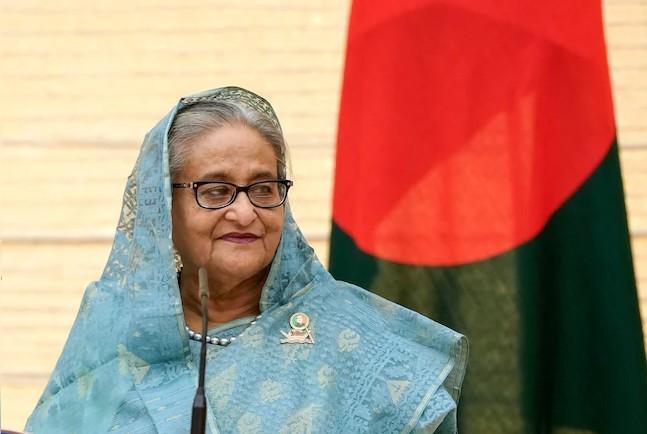
I Don’t Care About Verdict, Allah Gave Life & He Will Take It: Sheikh Hasina
As the world watches with bated breath, ousted former Bangladesh Prime Minister Sheikh Hasina has made a statement that has sent shockwaves across the globe. With a major International Crimes Tribunal verdict looming on the horizon, scheduled for Monday, Hasina has expressed her utter disregard for the outcome. In a bold and unapologetic statement, she declared, “Allah gave me life, Allah will take it…I’ve lost my parents, my siblings, and they burnt down my home.” These words, laced with a sense of resignation and faith, have sparked a flurry of reactions from across the world.
The context of this statement is crucial in understanding the gravity of the situation. Sheikh Hasina, a prominent figure in Bangladeshi politics, has been embroiled in a longstanding legal battle. The International Crimes Tribunal, established to investigate and prosecute war crimes committed during the Bangladesh Liberation War, has been conducting a trial against Hasina. The verdict, expected on Monday, has the potential to significantly impact the course of her life and the future of Bangladesh.
Hasina’s son, Sajeeb Wazed, has also weighed in on the situation, expressing his concerns about the potential outcome of the trial. In a statement, he said that the tribunal is probably going to sentence his mother to death. This grim prediction has only added to the sense of unease and tension surrounding the verdict.
Despite the looming threat of a potentially dire outcome, Sheikh Hasina remains resolute and unfazed. Her statement, “Allah gave me life, Allah will take it,” reflects a deep-seated faith and acceptance of her fate. This sense of resignation is not born out of fear or defeat, but rather a profound understanding of the transience of human life. By acknowledging that her life is in the hands of a higher power, Hasina is, in essence, freeing herself from the burdens of worldly worries.
The personal losses that Hasina has endured are well-documented. She has indeed lost her parents and siblings, and her home was burnt down. These tragedies, which would have broken a lesser person, have only served to strengthen her resolve and deepen her faith. In the face of adversity, Hasina has consistently demonstrated a remarkable sense of courage and resilience.
As the world waits with bated breath for the verdict, it is essential to consider the broader implications of this trial. The International Crimes Tribunal, established to bring perpetrators of war crimes to justice, has been a significant step towards accountability and reconciliation in Bangladesh. The verdict, regardless of its outcome, will have far-reaching consequences for the country and its people.
In the midst of this uncertainty, Sheikh Hasina’s statement serves as a poignant reminder of the human spirit’s capacity for resilience and faith. Her words, though born out of a sense of resignation, are also a testament to her unwavering commitment to her principles and her people. As the world watches, it is essential to recognize the complexity and depth of this situation, and to approach it with empathy and understanding.
In conclusion, Sheikh Hasina’s statement, “I don’t care about the verdict, Allah gave me life, and he will take it,” is a powerful expression of faith and resilience. As the world awaits the verdict of the International Crimes Tribunal, it is essential to consider the broader implications of this trial and the profound impact it will have on Bangladesh and its people. Regardless of the outcome, Hasina’s words will continue to inspire and motivate those who believe in the power of faith and the human spirit.





